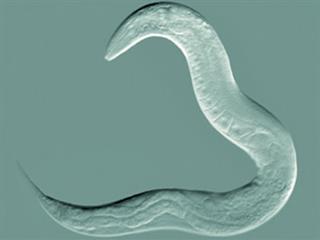
The Ruminant Veterinary Association of South Africa has reported an increase in internal parasites in livestock in most parts of the country due to warm weather, late rains and an absence of frost. With this in mind, here are tips for preventing parasite infestation.
If not controlled, internal parasites can cause illness in animals and major economic loss. Symptoms include weight loss, loss of appetite, depression, lagging behind or moving away from the flock, and anaemia, bottle jaw and diarrhoea.
Treating sick animals with dewormers is only a temporary fix. Unless you change the way you manage your livestock, the animals will soon be re-infected. Moreover, many dewormers no longer work, as internal parasites have developed resistance to the chemicals.
A better approach is for an animal to have a strong immune system; this will help it resist or tolerate parasites. A strong immune system stems from the following:
Genetics: Some breeds and some individual animals are better able to fight parasites.
Age: Young animals have no immunity. Sheep build immunity at four to nine months of age.
Good nutrition: Copper and zinc are important for the immune system, while protein also helps animals fight off parasites.
Low stress: Calm environments reduce animals’ stress.
In addition to these factors, you should ensure that the animals’ environment is as clean as possible to keep parasite numbers down. In particular, keep water tanks and feed troughs clean.
Pastures should also be managed carefully to reduce animals’ exposure to internal parasite larvae.
- Maintain proper forage height; don’t graze shorter than 10cm;
- Maintain the correct stocking rate;
- Rest contaminated areas for at least 60 days if possible;
- Allow the animals access to browse and to tall-growing pasture.
- Use resistant animals and alternate grazers – cattle and equines can alternate with sheep or goats;
- Provide clean pastures for young and other susceptible stock, such as lactating animals;
- Graze animals on regrowth from silage or hay crops;
- Keep animals out of wet areas;
- Rotate animals away from larvae before they can be infected. This means within four days during hot, humid weather, which is optimal for parasites.
The above tips are merely an overview. For more information on the parasites in your area, speak to your animal health technician.
Nevertheless, it is clear that the three most important actions you can take to prevent illness are the following:
- Help to ensure that the animals have a strong immune system;
- Keep the environment as clean as possible;
- Rotate your pastures.
Sources: Ruminant Veterinary Association of South Africa, part of the South African Veterinary Association; Margo Hale and Linda Coffey of the American Consortium for Small Ruminant Parasite Control (visit wormx.info).










